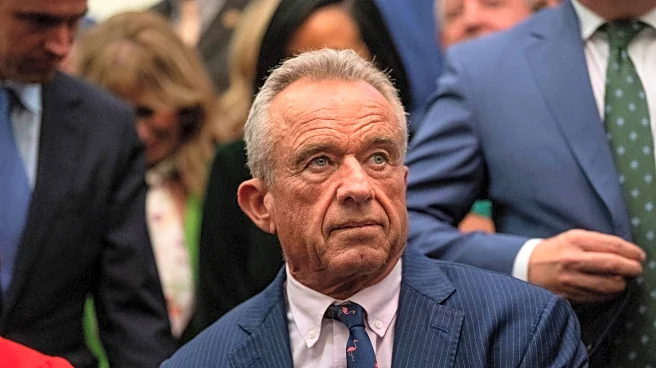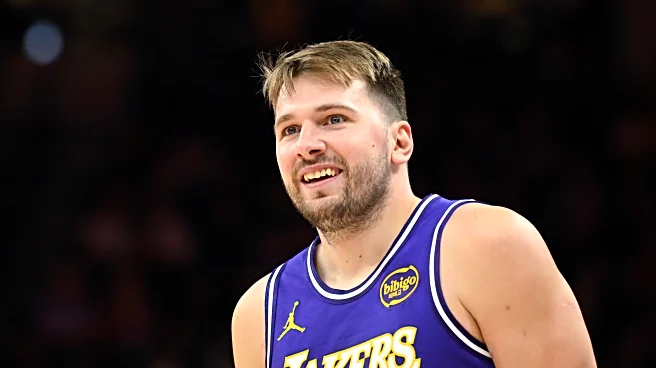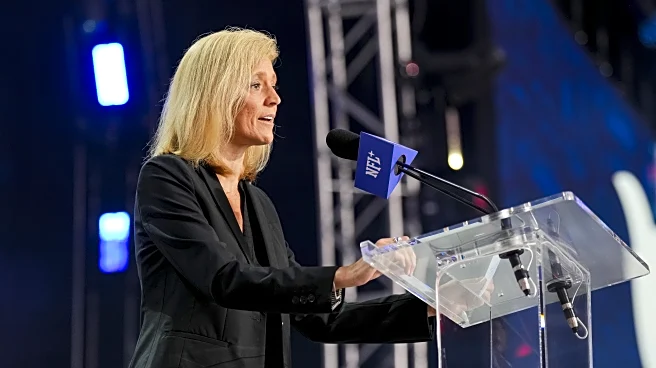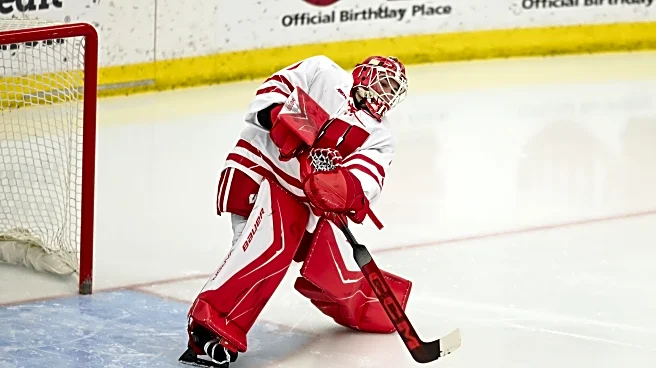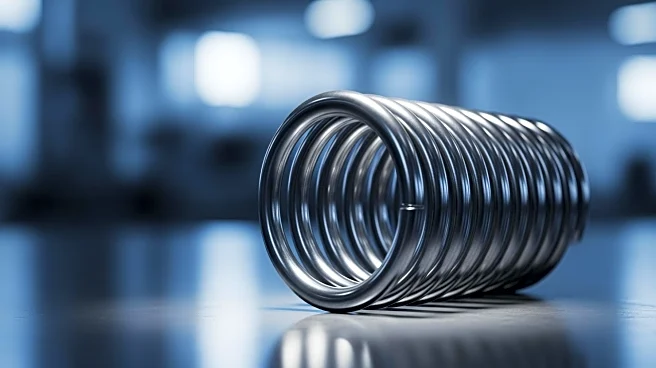WASHINGTON (AP) — Republican Sen. Bill Cassidy's support was crucial to Robert F. Kennedy Jr.’s confirmation as Secretary of Health and Human Services. With firings and resignations at the Centers for
Disease Control and Prevention now prompting concern about a leadership breakdown at the nation’s leading public health agency, the Louisiana lawmaker and physician is in a tight spot.
The two-term senator — who publicly expressed concern about Kennedy’s anti-vaccination positions before voting to confirm him — has worried aloud about “serious allegations” at the CDC and has called for oversight, without blaming Kennedy.
But he was choosing his words carefully as he returned to Washington this week after the Senate’s August recess and was preparing to question Kennedy during a finance committee meeting scheduled for Thursday. Cassidy told reporters he hadn’t yet decided what to ask Kennedy, saying, “I want to carefully frame the question.”
The tension underscores competing pressures: A senator with oversight responsibility for a massive federal agency and a Republican seeking reelection next year. Cassidy, who voted to convict Donald Trump after his 2021 impeachment trial, already has a cool relationship with the president. And his reelection chances would worsen were Trump to oppose him publicly.
“He’s in a pickle,” Republican state Sen. Alan Seabaugh said of Cassidy, “And it’s a box I don’t think he can get out of.”
The most recent turmoil at the CDC was the forced departure of Susan Monarez, a longtime government scientist who had been the CDC director for less than a month. Her lawyers said she refused “to rubber-stamp unscientific, reckless directives and fire dedicated health experts.” It came amid Kennedy's efforts to reshape the nation’s vaccine policies to match his long-standing suspicions about the safety and effectiveness of long-established shots.
Last month, Cassidy voiced concern after Kennedy's June firing of the CDC's Advisory Committee on Immunization Practices. Cassidy had noted “serious allegations” about the outside group of experts that has been reshaped by Kennedy, a leading anti-vaccine activist before becoming the nation’s top health official.
Cassidy was asked Tuesday about what information he'll seek from Kennedy at Thursday's hearing.
“I want to carefully frame the question. The issue is about children’s health. There’s rumor and allegations that children’s health, which is at issue here, might be in danger by some of the decisions that are purported to be made,” Cassidy said in the Capitol.
“I don’t know what’s true. I’m not quite sure what I just told you is exactly how to phrase it. I know that we need to get there,” he said.
On allegations from those who resigned that Kennedy put politics above science, Cassidy was equally careful.
“Shouldn’t we find that out. You don’t presuppose they are right. You don’t presuppose they are wrong,” he cautioned. “You go at it in a way in which both sides get a chance to say, and then we can judge.”
Cassidy’s public concern about immunization policy recalled his hesitation to vote to confirm Kennedy in February.
Cassidy told Kennedy during his January confirmation hearing that he was “struggling” with his nomination. “Your past, undermining confidence in vaccines with unfounded or misleading arguments, concerns me,” he told Kennedy during his confirmation hearing.
Still, Cassidy voted for Kennedy, later describing intense conversations with the nominee and Vice President JD Vance that yielded “serious commitments” from the administration.
Already facing a crowded field of Republican primary challengers, Cassidy is operating with little wiggle room.
A group supporting Cassidy's candidacy has been airing ads promoting the senator's support for Trump's agenda, while Trump himself, famous for publicly condemning others who have voted to convict him, has been quiet.
Trump is treating Cassidy friendlier than others who have publicly opposed him previously because the president needs the vote in a narrowly Republican-controlled Senate, Louisiana state Rep. Mike Bayham said.
“He would be in a lot more hot water had he defied Trump. Had he torpedoed RFK, Trump would not be neutral but would be working overtly against Bill,” Bayham said. “Cassidy, for his own political self-interest, has to vote Trump’s way, and Trump doesn’t even have to say thank you. The thanks is his silence.”
Trump has indeed been quiet as a field of Republicans has begun to gather to challenge Cassidy in what would be the state's first closed party primary in 16 years, in light of legislation enacted this year. Louisiana State Treasurer John Fleming, state Sen. Blake Miguez, and Public Service Commissioner Eric Skrmetta have announced they are running for the seat.
Republican Gov. Jeff Landry has discussed with Trump the idea of U.S. Rep. Julia Letlow, who is considering a Senate campaign, as a possible Cassidy challenger.
Cassidy announced his candidacy for a third term last month, and reported having $9 million in his campaign account, while a super PAC supporting him reported having $2.5 million, a total far more than his combined competition.
Senate Majority Leader John Thune, a South Dakota Republican, and South Carolina Sen. Tim Scott, chairman of the National Republican Senatorial Committee, endorsed Cassidy for reelection last month.
But with a newly enacted election system, where only registered Republicans and politically unaffiliated voters can participate in the GOP primary, Cassidy will likely have a tougher time than he would have under the former system.
For the past 16 years, congressional candidates from all parties seeking the same office ran on the same ballot regardless of party affiliation. In these so-called jungle primaries, only a candidate who received 50% of the vote would win the office outright. If no one reached the threshold, the top two finishers would face each other in a runoff.
The partisan primary will create a more GOP-heavy electorate for the Senate primary in a state Trump carried with 60 percent of the vote in 2024.
“Cassidy has put himself in a situation for which there are really no wins,” Scott McKay, a Louisiana Republican who runs a conservative news website. “In all this, what he hasn't bought is the goodwill of Trump voters.”
___
Beaumont reported from Des Moines, Iowa.
